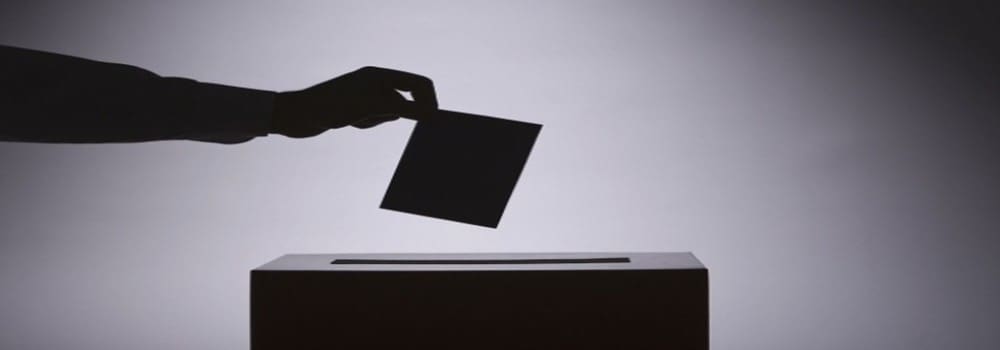Prosecutors investigating voter fraud in Dallas County are focusing on mail-in ballot applications tied to an unnamed candidate in the May election. A local news report suggested the candidate was Grand Prairie school board member David Espinosa.
Dallas County District Attorney’s Office prosecutors asked a judge to impound a box of suspicious ballot applications received in January, most of which show the voters were “assisted” with their applications by the unnamed candidate. Two other suspects connected with the candidate assisted many of those same voters with their May mail-in ballots.
When election officials reviewed the mail-ballot carrier envelopes of those assisted voters, they determined some voters’ signatures were forged and rejected those ballots.
Court documents filed by the district attorney’s office describe the candidate as “a suspect who lives in Grand Prairie,” according to The Dallas Morning News. All three suspects list the same address in Grand Prairie.
DMN believes Grand Prairie Independent School District trustee David Espinosa is the unnamed candidate tied to the voter fraud scheme.
Four Grand Prairie positions were on the May 5, 2018 ballot in Dallas County. Espinosa’s was the only GPISD race. Three Grand Prairie city council races were also on the ballot. One was citywide; the other two were in council districts that don’t coincide with Espinosa’s school board district.
Espinosa was first elected to the GPISD board in 2015 to represent the new single-member Place 5 district drawn in 2014. He was re-elected in May 2018, defeating challenger Julie Ford-Mitchell by 153 votes, 297-144. An unusually high 63 percent of Espinosa’s votes were cast by mail-in ballot, a total of 188, compared to 35 percent for Ford-Mitchell.
These aren’t the first allegations of mail-ballot voter fraud connected to Espinosa.
Democrat political operative Jose Barrientos was caught on secret audio recordings last year claiming Espinosa planned to steal the 2019 Grand Prairie mayoral election with mail-in ballots — a charge Espinosa denied.
“David’s trying to get the mayor’s seat. He’s going from school board trustee to mayor. 25,000 absentees they’re targeting for the next election,” Barrientos said in the recordings, aired by WFAA in May 2017. “We’re working Grand Prairie… We’ve got most of them already set up. So, we’re going to unseat a mayor bro. We’re going to have us a town.”
After the recordings were made public, Barrientos told WFAA in an interview that he’d done nothing wrong, but went on to describe how illegal vote harvesting schemes work.
Mail ballots are “an open market,” Barrientos said:
“Nine times out of 10 they’re going to vote for who the person in front of him tells him to. This is what works on everybody… I mean 99.9 percent of the time they’re going to vote for whoever you suggest. You’ve got to understand, especially in poverty neighborhoods, most of these seniors don’t have anybody to come visit them.”
Voters who are disabled or age 65 or older are eligible to vote by mail. Voters who can’t read or are physically unable to fill out the forms are eligible to receive assistance completing applications and ballots. But Texas Election Code requires voters who need help to ask for assistance. State law also prohibits a person assisting a voter from telling the voter who to vote for. Ballot harvesters routinely violate one or both of these laws.
Harvesters might also steal ballots directly, right out of voters’ mailboxes, and fill them out themselves. As Texas Scorecard previously reported, if harvesters also forged those voters’ signatures on ballot applications, the application and ballot signatures will match when compared by election officials, even though both signatures are fraudulent.
Dallas County Elections Administrator Toni Pippins-Poole reported a spike in mail-ballot voter fraud complaints in the May 2017 election. Dozens of voters in Grand Prairie and West Dallas said they’d received mail-in ballots they hadn’t requested.
“We’ve never received this many complaints,” Pippins-Poole said at the time.
Over 700 suspicious mail-in ballots from the 2017 municipal elections were eventually set aside for extra scrutiny before being counted; those determined to be fraudulent were turned over to the DA’s office. One suspect in that case, Miguel Hernandez, was arrested and pleaded guilty to one count of voter fraud.
In the wake of that ongoing voter fraud investigation, election officials began monitoring mail-ballot applications received for 2018 elections. In February, a judge granted the DA’s request to sequester any ballots or applications flagged as suspicious. Some of the applications were filled out in 2017 but not submitted until January and February of 2018, according to Assistant District Attorney Andy Chatham.
About 1,200 mail-ballot requests for the March 2018 primary were set aside. If the requests were for an “annual application,” those voters would receive mail-in ballots for all elections in the calendar year.
Espinosa told DMN he was unaware of any voter fraud investigation involving his Grand Prairie ISD election and says his high percentage of mail-in votes was due to the “great campaign team” that worked his district’s neighborhoods.





